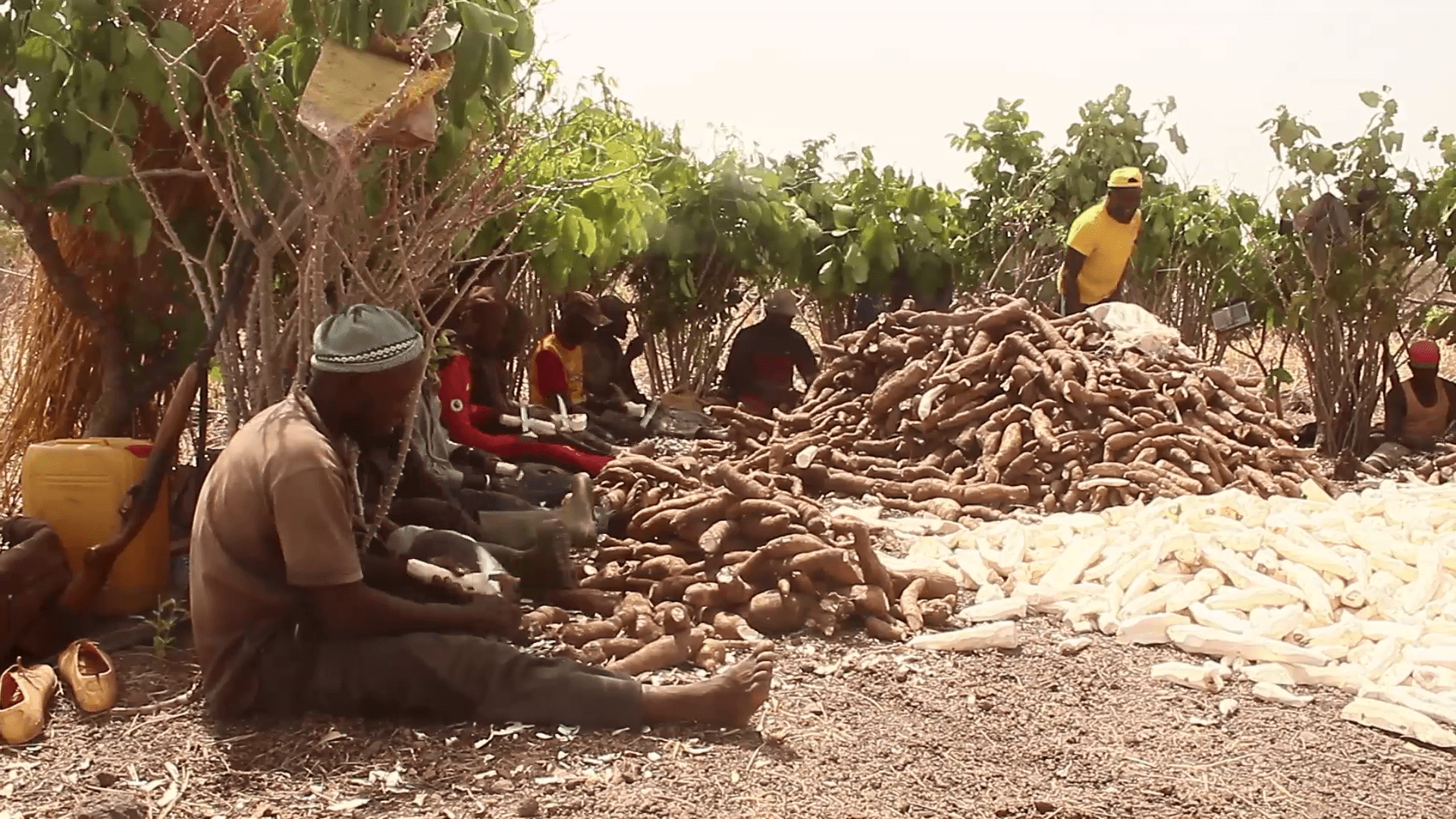The prefecture of Mandiana, located in Upper Guinea is known for its fast-growing gold panning practices. This activity is widely practiced by nearly all the youths from the rural communes of the prefecture, who opt for fast money despite the harmful consequences of this activity like loss in human life and environmental destruction.
However, in spite of the lust for gold, some young people stand out by choosing agriculture which they consider more beneficial. Such is the case of the young people of the "Kougbana" group in the locality of Loïla, a district belonging to the Koundian sub-prefecture. Despite their meagres resources, have been farming for several years. Kalil Sacko, a founding member of the group, explains their motivation " We were born and raised here in Loïla. As children we practiced artisanal gold mining with our elders. It is true that at the time we used to make a bit of money, but afterwards we knw that it is not a work that makes you rich, rather we contribute to enrich the bosses who buy gold from us. In addition, considering gold panning as a profession is an ignorance; it should rather be considered as a paralell activity because it does not have a future. This is why we got together and take the initiative to nturn to agriculture that not only contributes to economic development of our locality, but also preserves the environment and our lives which were at danger every time we were in the gold mining holes.. These are the reasons that pushed us to do agriculture", he said.
Chosing agriculture with the meagre resources they have, these young people have succeeded in developing a field of cassava and cashew trees covering more than 30 hectares. Their main ambition is to succeed and encourage other young people to take up farming abandoning mining.
"When we first started in 2020, we started with cassava and cashew trees farming. we got good results, which allowed us to increase our farming land to 30 hectares. Beyond that, every member of the group has started their own farm with the meagre resources we got. Some grow maize, others grow oranges, peanuts, cashews, etc. We have set up a system that allows us to work together in our collective farm, but also in our individual farms too. We want to be inspiring role models for other young people whose only job is artisanal gold mining. In other word, we would like to show them that agriculture can offer an alternative more sustanable than artisanal gold mining, which is nothing but an activity with a temporary profitability. We rather be farmers than artisanal gold miners", said Nouhan Sacko
For these young people, their locality abounds in enormous fertile farmlands that are now being destroyed by mining activities. According to them, developing these lands through agriculture is a way to preserve these lands for the benefit of the community.
"Our village is a farming community, and we have enough farmland. But by dint of using them for artisanal mining, we have ended up destroying a lot of space that cannot be fertile anymore. In the pas, people granted their farmind lands to artisanal miners just to get a small interest on any gram extracted from these lands. Today, some of them have no space for farming, and the money they got served to nothing but maybe to build and buy food for their family. However, if they had practiced agriculture on these lands, they could build, guarantee their self-food sufficiency and still work on the same land. Our communities need to realize that artisanal mining brings nothing to our communities except economic, social and environmental disaster", lamented Mamadi Sacko.

